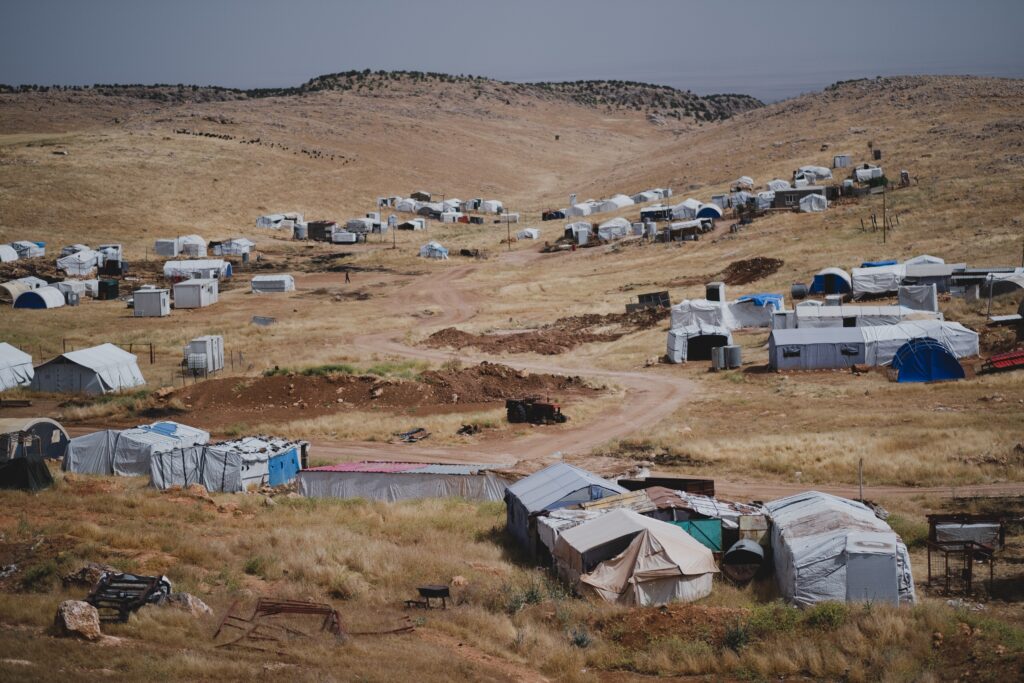
The creation of a peer-reviewed African Migration Journal is one of the fundamental objectives of the African Centre for the Study and Research on Migration (ACSRM) per the status establishing the ACSRM. The ACSRM aims to publish high-quality research focus or policy discussion papers that deepen understanding of the configurations, meanings, dynamics, and trends of Africa’s migration.
The African Migration Journal is an international multidisciplinary peer-reviewed scholarly journal devoted to enhancing understanding of the past, contemporary, and future African migration trends, patterns, dynamics, and policy implications. The AMJ is a double anonymous peer-reviewed journal that endeavors to publish high-quality papers on all aspects of African migration and to be the leading international/global reference on African migration issues for scholars, students, researchers, governments, policymakers, and the general public interested in African migration.
The AMJ publishes theoretical and empirical analyses of various topics about African migration, and as policy-oriented papers aimed at addressing the fundamental challenges of African migration. Papers can be original research papers, policy discussions, journal articles, policy-oriented papers, book reviews, research, training, and teaching notes, and country/region reports aimed at enhancing understanding of Africa’s migration processes and addressing African migration issues from a policy standpoint. The Journal welcomes original research papers, policy-oriented papers, papers based on comparative perspectives, and book reviews about African migration.
The AMJ is an interdisciplinary journal open to all migration scholars, experts, researchers, and policymakers working on African migration issues. The AMJ is open to various theoretical and methodological approaches and encourages innovative theoretical and methodological perspectives to understand better African migration patterns and trends beyond the dominant approaches drawing from the Global North that can result in misleading narratives of African migration processes.
The AMJ publishes top-quality papers and book reviews on African migration issues meeting international standards. The Journal constitutes a global platform to deepen understanding of African migration and get updated knowledge about past and contemporary African migration patterns, trends, and dynamics. It provides a unique space for the publication and dissemination of relevant papers on African migration that interest to academics, researchers, policymakers, governments, international organizations, civil society organizations, donors, think tanks, and migrants’ associations.
The Journal deals with wide-ranging topics concerning Africa’s migration, whether from, within, or to Africa. The Journal also examines how Africa’s migration issues are situated within the international/global debates on migration.

Topics include inter alia, but are not limited: causes, drivers, and impacts of Africa’s migration; migration and development; labor migration; skilled migration (brain drain, brain gain, brain circulation, and brain waste); irregular migration; trafficking in human beings and smuggling of migrants; migration, transnationalism, and diaspora; migration and gender; child migration; women’s migration; migration and health; migration of health professionals; student migration; migration and ageing; migrants’ vulnerabilities; migration, climate change, and environmental degradation; migration governance; migration policy; mainstreaming migration into development policy planning; migration statistics and data collection; migration and law; national and international legal and policy instruments related to migration; migration and human rights; discrimination, racism, and xenophobia; migrants’ integration; migration and trade; mixed migration; transit migration; international cooperation on migration; border control; cosmopolitanism; citizenship; etc. The Journal also publishes book reviews on African migration issues.

Papers are only published after going through a rigorous peer review process that is summarized as follows:
- First screening by the AMJ Editor who reviews the submitted manuscripts to ensure their strengths and relevance.
- Then, the AMJ Editor sent out anonymously the submitted manuscripts to external reviewers and further evaluation.
- After evaluating the submitted manuscripts, external reviewers send their reviews, confidential comments and comments to the AMJ Editor.
- Based on the external reviewers’ feedback and confidential recommendations, the AMJ Editor makes editorial decisions about possibly publishing the papers in the Journal.
There are four possible editorial decisions:
- Acceptance of the paper for publication.
- Minor revisions to be overseen by AMJ Editors.
- Major revisions and additional external review.
- Rejection.

Authors are not provided honorariums or paid for their submissions. In the same vein, publication in the AMJ is cost-free.
By submitting a manuscript, the authors express their commitment to publishing in this Journal. It may take 6 to 8 months from the manuscript submission to time to first decision.
To be eligible for publication, papers submitted to the AMJ should not have been submitted simultaneously to another journal. Papers submitted to AMJ should not have been previously published in repositories or as peer-reviewed working papers or discussion papers. Authors are requested to modify manuscripts or headers in non-peer-reviewed electronic collections (including their websites) mentioning the paper as forthcoming in the AMJ.
Publication Frequency
The Journal is published online. But there are plans also to publish the Journal in printed documents.
The African Migration Journal publishes annually one volume comprising four issues. The Journal publishes issues quarterly in March, June, September, and December.
Annually, 1-2 Special issues are published by this Journal through a competitive Call for Special Issue Proposals from which the proposal is selected.
Submission guidelines
The African Migration Journal publishes original research and policy-oriented papers on wide-ranging aspects of Africa’s migration. To be considered, manuscripts submitted to AMJ should not be published previously and should not be under consideration for publication anywhere else. Manuscripts submitted to the African Migration Journal should not have been published previously in another language or under consideration in another journal.
To be considered for publication, the authors should ensure that their manuscripts align with the AMJ’s submission guidelines. The paper submitted must have been approved by all co-authors and the responsible institutions/ authorities where the work has been conducted before its submission. The AMJ declines any legal responsibility for issues related to compensation and copyrights.
Authors are required to provide the following information in separate sections and in separate page:
- Author’s name (s) and contact details
- Author’s bio (50-100 words) that provides a brief snapshot of the key points discussed in the paper
- Text: See the AMJ Submission Guidelines and Style Guide
- References:
- Notes:
- Figure captions (each on a separate page)
- Tables or figures (each on a separate page)
Permission
Figures, tables, or text passages can be included in the paper submitted on the condition that the authors request permission from the copyright owner (s) for both the print and online format and include proof that such permission has been given when submitting their papers.
Submission process
At this stage, all the papers should be submitted through this email: Ibrahima.Dia@africa-union.org.
But as the African Migration Journal develops its website, there are plans for online submission in the future.
How to submit a manuscript to the AMJ? Submission style format
Papers submitted should be typed in 12-pt Times New Roman font and double-spaced, including indented matter, footnotes, tables, figure captions, quotations, and references.
Manuscripts submitted should be 10,000 words (around 30 double-spaced pages) or less, including citations. Manuscripts submitted should not exceed 10,000 words, including citations.
Citations and references
Authors of submitted manuscripts must ensure that the in-text citations and references follow the Author-Date format of the Chicago Manual of Style. In-text citations should be parenthetical. Sources are mentioned in the text by identifying the author’s last name, publication year, and pagination, all within parentheses.
Examples:
(Adepoju 2012)
(Adepoju 2012 : 27-30)
(African Union 2018 : 80-97).
(Adepoju 2012, Kane 2014) – multiple citations
(Dukpe and Kwame 2019: 18) – for two authors
(Adepoju, Kwame, and Mensah 2007) – for three authors
(Mensah et al. 2020: 6) – for three or more authors
All reference items are listed in an appendix entitled “References” in an alphabetical order: author’s last name and first initial; then publication yea; starting with the most recent year. For multiple authors or Editor listings, please, include all authors. Titles of books and journals should be written in italics.
Examples:
Bedford, R., and P. Spoonley. 2014. “Competing for Talent: Diffusion of An Innovation in New Zealand Immigration Policy.” International Migration Review 48(3): 891-911.
Tajfel, H., and J. C. Turner. 1986. “The Social Identity Theory of Intergroup Behavior.” In Psychology of Intergroup Relations, edited by S. Worchel and W. G. Austin, 7-24. Chicago: Nelson-Hall.

Open Access Policy
The AMJ has an open access policy to allow wider knowledge sharing and dissemination on African migration issues and to enhance the international visibility of African migration scholars and experts.
The AMJ is of the view that making research freely accessible to the public audience contributes to strengthening knowledge sharing, exchange, and transfer and deepening understanding of African migration trends and patterns and their policy implications. The Journal has no embargo policy regarding its publications.
The Journal is available in PDF format for each paper submission and acceptance dates, along with publication dates.
The Journal does not retain copyrights. Authors of the articles published by the Journal are copyright holders and allow third parties to use the paper per the Creative Commons license ascribed to the article.
Archiving Policy
The ACSRM ensures that knowledge products on Africa’s migration are accessible to the wider audience in Africa and beyond. The ACSRM endeavors the archiving of the Journal all around the world to ensure its long-term sustainability.
The Journal will be archived in major global outlets..
We will ensure that the Journal is available for harvesting via relevant tools. This will help “to create permanent archives for preservation and restoration”.

For more information, please contact
Ibrahima Amadou Dia,
Director of African Centre for the Study and Research on Migration (ACSRM) African Union Commission (AUC)
Bamako, Mali
Email: Ibrahima.Dia@africa-union.org
8 march 2024
Call for publications for the Special Volume on African Migration Governance to be published in the African Migration Journal (AMJ)
8 march 2024

